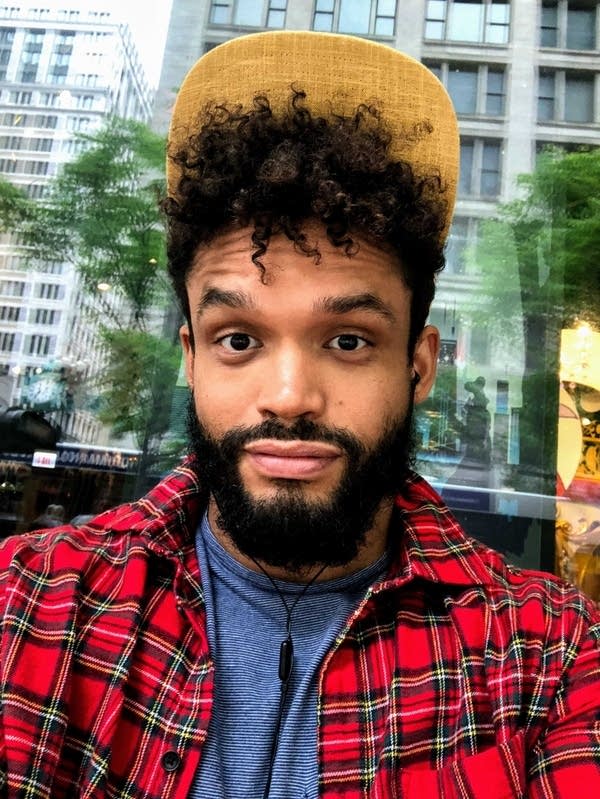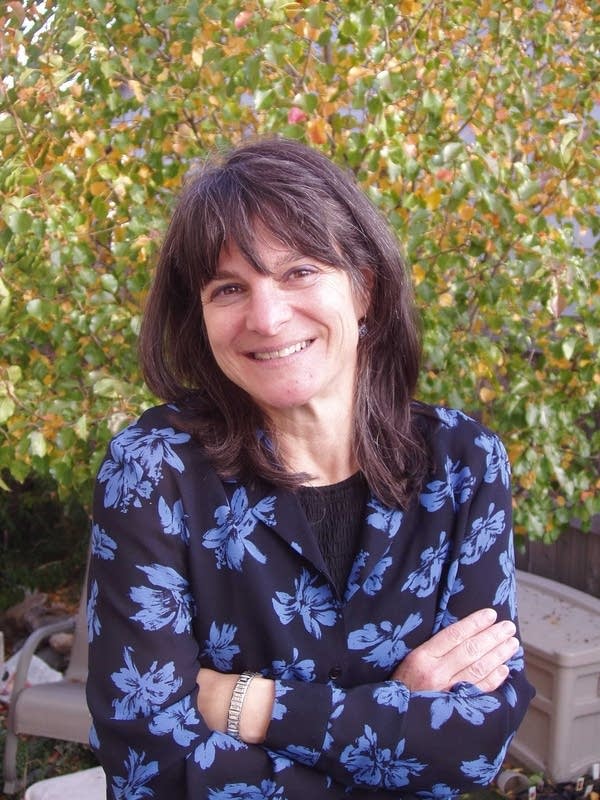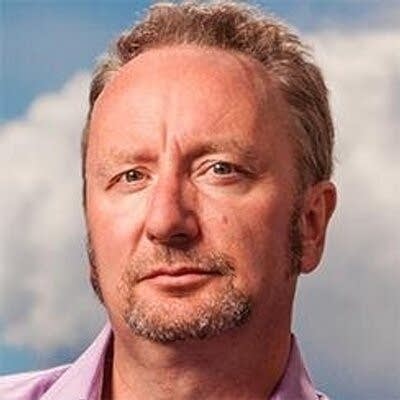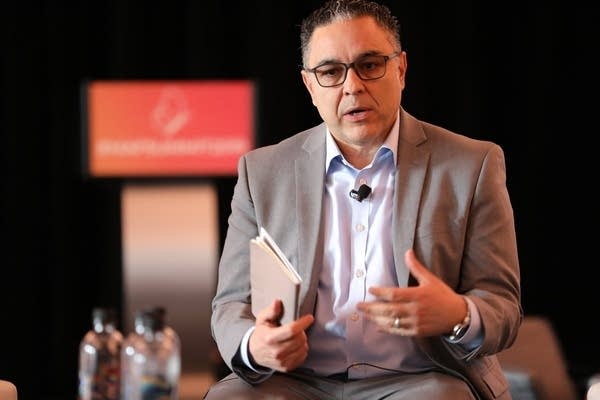The Economy Reimagined, Part 1: Dealing with Inequality
Amid the wreckage of 2020, are there opportunities to fix what was already broken, including the system of human relationships we call the economy?

The following is a transcript of “The Economy Reimagined,” a Marketplace special report.
Click here to read and listen to Part 2 on jobs, education and poverty.
Click here to read and listen to Part 3 on the climate and technology.
For so many of us, 2020 has been a horrible year. We’ve lost loved ones, jobs, livelihoods. But amid the wreckage, are there opportunities to fix what was already broken, including the system of human relationships we call the economy?
David Brancaccio: In 2015, researchers working with the Federal Reserve Bank of Boston set out to measure the wealth of households. Questions like: How’s your savings? Do you own a house, a car, maybe some appraised jewelry? Subtract what people owe, and that’s called net worth. For the typical Boston-area white household, it’s $247,500. The median net worth of Black households in the region? $8.
This is about race. And experts say it’s not only about race. I’m David Brancaccio, host of “Marketplace Morning Report.”
Kimberly Adams: And I’m Marketplace’s Kimberly Adams. Earlier this year, we commissioned a poll to measure economic insecurity. As you might expect, given the pandemic, the Marketplace-Edison Research Economic Anxiety Index® rose by the most we’d ever seen. But here’s the thing: For people earning $25,000 a year or less, their financial anxiety didn’t go up. It was flat compared to last year. Experts see that as evidence low-income people were already living with pandemic levels of economic insecurity well before the first COVID-19 case showed up in the U.S. And folks earning $25,000 or less every year, that’s one-fifth of Americans.
Brancaccio: It’s also suffocating debt. No extra cash if car or body hits a bump. The costs of health care, child care, education. And, just who has access to the training and the connections to turn your good idea into a business? It’s clear the system that provides our livelihoods, the economy, could do better for us and for the Earth. That’s what this program is about.
Adams: Ideas to go beyond economic recovery and toward a system that works better for more people. This moment — the combination of the pandemic and the renewed energy of the social justice movement — is prompting many to say now is the time to consider new ideas. Policies and strategies that may have seemed unthinkable in the “before times.” We’re going to explore some of those ideas with the help of a couple of families. Here’s one.
Frances Cox and Jasson Perez are divorced and co-parenting their 17-year-old daughter, Nisa, in Chicago. Frances is 46.
Frances Cox: I grew up on the west side of Chicago, the oldest of three children to a single mother. And I wasn’t really sure about finances and, like, taking care of myself and those kinds of things as a young person.
Adams: Jasson is 39 and from a middle-class family on the north side of the city. His dad was a police officer, and his mom was a hospital claims manager.
Jasson Perez: You know, my parents owned our house, so I think there’s always these moments where you think, oh, I should really be owning a house at this moment. Oh, I should really be doing this.

Adams: Growing up, Jasson and Frances expected to follow a path that tracked the American dream. But life for so many families is much more complicated than that. Frances did well in school, and after $100,000 on a four-year education now has a business cleaning houses.
Cox: Every day, I wonder to myself, do I dislike this job because I feel like it’s demeaning? And that in itself is problematic to me. My grandmother cleaned toilets. There’s nothing wrong with cleaning. And then I say to myself, “Is it because I’m doing this manual labor? You know, is it because it’s hard work?”
Adams: Jasson dropped out of school at 15 and fell into addiction, which led to prison, on his way to becoming, now, a researcher with a social justice advocacy organization. The Perez-Cox family are among the people at the sharp end of the economy helping us reimagine systems that bring financial security to more people.
Brancaccio: Let’s start our reimagining by turning to Andre M. Perry at the Metropolitan Policy Program at the Brookings Institution, who works on ways to confront structural racism. Where would he start?
Andre M. Perry: Wow, there’s so many things, from reparations to business ownership and business financing.

Brancaccio: But if he had to start with one …
Perry: I’ll go with, if we can increase the number of Black businesses that have more than one employee by 15%, we can expand the economy by $55 billion.
Adams: Frances Cox runs a one-person business. She’s an independent contractor. And despite her reservations about the work, she likes the flexibility.
Cox: I’m able to be home to help my daughter with her homework. I get to control my schedule. It’s like I have my own business.
Adams: But if she ever wanted to expand that business, to take on employees, for example, there are obstacles baked into that process.
Brancaccio: Four years ago, the Center for Global Policy Solutions calculated that because of discrimination in lending, more than a million businesses that could have been, never happened. Nor did 9 million jobs or $300 billion in income. A Federal Reserve study, controlling for credit score, found that banks give a harder time to minority-owned businesses seeking loans.
This year, amid the renewed energy of the social justice movement, some brand-name firms are stepping up to offer some of those loans themselves. Pepsi has pledged to lend $50 million over five years to Black-owned businesses, responding to calls to “hire or wire.” Investment is the “wire” part. Here’s Perry with the other.
Perry: I’m from Pittsburgh, where Google landed its headquarters there. The Black communities around that neighborhood are struggling. There has to be a deliberate effort to invest in Black lives whenever a company comes to town. Remember, many of these companies could change the economic trajectory of their communities with a snap of a finger by hiring them.
Perry is author of the book “Know Your Price: Valuing Black Lives and Property in America’s Black Cities.”
Adams: There’s another family helping us with this project. In Houston, 56-year-old Roland is struggling economically.
Roland: I don’t know if I could ever make a decent living. So if I want to stay poverty-level, I stay in my career. I’ve worked really hard in the field, and it’s led me to a position where I only see poverty.
Brancaccio: That career is working as a massage therapist, which barely paid the bills even before the pandemic, back when you could touch people. Now, the work has dried up, so one of his siblings, his sister, Rochelle Rittmaster, is helping him out. She lives in Denver and she’s sending him $500 a month. She’s had a successful career as an engineer, but she’s quick to acknowledge that her own economic life could have played out very differently.
Rittmaster: You just have to have luck, it seems. I can’t say what that predictive path could be.

Brancaccio: Even though she and Roland grew up in the same family and the same city — Kansas City, Missouri — they’re about a decade apart in age, and Roland had a much tougher home life. Their father died when he was still really young, and their mother struggled with mental health issues.
Rittmaster: It seems like a person’s trajectory can turn on just about anything, whether it is an accident or illness, whether it is a particular choice of path.
Adams: Or things individuals can’t control — your race or ethnicity, or particular systems or policies baked into law.
Brancaccio: An economy that doesn’t treat people right can fuel anger. Political economist Mark Blyth at Brown University’s Watson Institute for International and Public Affairs distinguishes between corrosive anger that pits factions against each other versus the fuel for positive change.
Blyth: A kind of righteous anger, a kind of moral anger that is a desire to be heard. And it’s something you see in a lot of the populist uprisings of both left and right. This notion that we’re not being listened to by our elites and that they play by a different set of rules.
Brancaccio: Blyth co-authored a new book with a hedge fund guy called “Angrynomics” that has a lot of reimagining in it. For instance, maybe big digital companies would pay people when they turn our data into gold. And Blyth is shopping the notion of the U.S. pulling a kind of Norway by creating a massive public endowment. Norway’s got North Sea oil profits for its sovereign wealth fund. What the U.S. has is superlow interest rates that make government borrowing supercheap. He is among those who think rates will stay low from now on because inflation is, in his words:
Blyth: Dead, dead, dead, dead, dead.
Brancaccio: Since borrowing at 0% is practically free, he suggests the government could go and buy tons of stocks, bonds and other investments and let them grow on the markets. Call it a citizens’ wealth fund, like Harvard’s huge endowment, but mega.
Blyth: The public owns the wealth. Not in the way of some socialist notion, in a very capitalist notion that we are passive investors in the national fund for our wealth. And then, basically, we’re able to distribute the earnings from that not to the top, but more to the middle and the bottom.

Brancaccio: Maybe a person could cash out of this to start a business when they turn 21. Or help pay for college or something. There are risks. A new world war would blow up the fund, but in that case we’d have bigger problems, Blyth says. And some people, especially a subset of conservatives, worry inflation is not dead and buried, but could roar back, making the cost of servicing all the government debt a new burden on future generations.
Staying on this theme of financial innovation, let’s talk about what is called a social bond.
Patrice Kunesh: Investors are willing to raise funds, put money on the table for projects with a positive social outcome, and the real opportunity to provide an investment return to the investor as well.
Brancaccio: Patrice Kunesh is the former director of the Center for Indian Country Development at the Minneapolis Fed and is now at the Native American Rights Fund.
Kunesh: Tribal governments do have the capacity to issue bonds. But I’d love to see private-public partnerships where we could combine purpose with profit, and I think Indian Country is a very attractive opportunity for investors, especially the opportunity to use lands for agricultural purposes, for energy development.
Brancaccio: Kunesh, who is of Standing Rock Lakota descent, says tribal governments have to get the authority to determine how the outside investment will be used, but clean water, proper housing and fast internet are places to start. Social bonds are in the news with some big philanthropies borrowing to increase the grants those charities can give out during the pandemic. Those social bonds sold well.
Another place where the horrors of COVID-19 have inspired new thinking has to do with the $1,200 pandemic checks. Those look, taste and smell very like an anti-poverty system that’s been under study for years: the universal basic income. This is where government hands out money routinely, even when there’s no emergency. Because, for many, the emergency never ends. And further disruption is set to come when software machines do more of our jobs.
José Quiñonez: And I’m afraid that, through this pandemic, through this crisis, we just kind of sped up to that future.

José Quiñonez founded Mission Asset Fund, which has devised a variety of innovations in the name of financial inclusion. He’s a MacArthur “Genius Grant” recipient.
Quiñonez: I believe that there’s dignity and purpose in work, and I believe that to my core. But I also think that there’s dignity in helping each other out, particularly when people are not able to work for no fault of their own.
Beyond COVID-19, Quiñonez is among the many, including Tesla CEO Elon Musk, who support a universal basic income to create a financial floor for people amid rapid technological change.
You can read more insights from the experts below:
“Why eliminating racial inequities is key for the post-COVID-19 economy,” with Andre M. Perry, a fellow in the Metropolitan Policy Program at the Brookings Institution and author of “Know Your Price: Valuing Black Lives and Property in America’s Black Cities”
“What if COVID-19 checks were a regular occurrence?” with Mark Blyth, professor of international economics at the Watson Institute for International and Public Affairs at Brown University and co-author of the book “Angrynomics”
“How social impact bonds could spark prosperity for Indian Country in a pandemic recovery,” with Patrice Kunesh, the former director of the Center for Indian Country Development at the Minneapolis Fed, now at the Native American Rights Fund
“The need for an equity-based universal basic income,” with José Quiñonez, founder of Mission Asset Fund
And you can find their books here:
“Know Your Price: Valuing Black Lives and Property in America’s Black Cities,” by Andre M. Perry
“Angrynomics,” by Eric Lonergan and Mark Blyth
“The Economy Reimagined” was produced by Candace Manriquez Wrenn, Rose Conlon, Victoria Craig, Meredith Garretson, Daniel Shin and Erika Soderstrom. Alex Schroeder produced the digital elements. Engineering by Brian Allison and Jay Siebold. Our theme music was composed and recorded by Daniel Ramirez and Ben Tolliday. Our executive producer Nicole Childers oversaw the project.













